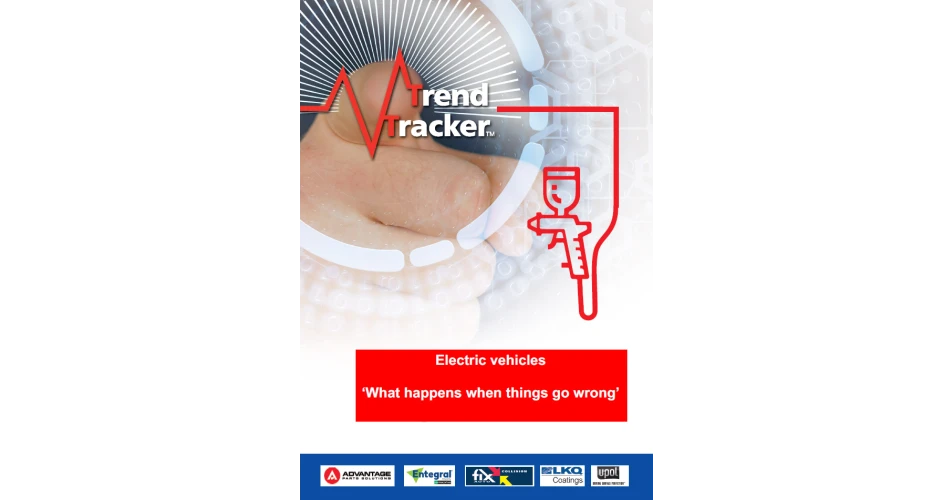A new report by Trend Tracker, has highlighted the challenges the vehicle repair and insurance industries are facing, with the advent of increased numbers of electric vehicle repairs.
Entitled ‘Electric Vehicles (EV), What Happens When Things Go Wrong’ the report is based a the finding of a recent cross industry discussion group, including Chris Weeks, executive director of the National Body Repair Association in the UK and Kirsty McKno, managing director of Cogent Hire.
Chris Weeks commented, ““EVs and AFVs are not necessarily any more unsafe than ICE, but whereas the industry has had more than 100 years to develop experience and understanding of ICE, EV/AFV are relatively new.”
One area of issues that has been pointed out is how easy it is to set up a recovery business with no qualifications or training. Chris said, “It should really be against the law to work on these vehicles without the required accreditation, methods, and skills. An EV is fine when you are driving it, but when it crashes, it is then a dangerous good.”
Kirsty Mckno said that a number of bodies are exploring commons standards for EV, including the ABI and Thatcham, but at present, there is no single approach through from VM and underwriter, first response, recovery, repair and salvage to end of life. She commented, “EVs may ignite up to 4 weeks post-accident, which means that having a consistent standard is vital to industry and consumer safety. We support the aim to increase EV/AFV within the parc and we don’t believe EV are any less safe than ICE; it is knowledge of how to deal with an EV/AFV when they go wrong that we lack.”
The report also stresses that insurers need to fundamentally change how they price, underwrite, insure and service these vehicles. Within all areas of claims management there is a need to ensure that FNOL staff are properly trained to manage the specific requirements of EV/AFV post-incident.
Kirsty commented, “Clearly the industry needs to invest in approvals, tooling, additional space requirements and technical skills. That means alternative fuelled vehicles will cost more to repair, but consumers will not want to pay more for insurance, particularly not in this cost of living crisis.”
The report can be viewed for free on the Trend Tracker website,
here.
